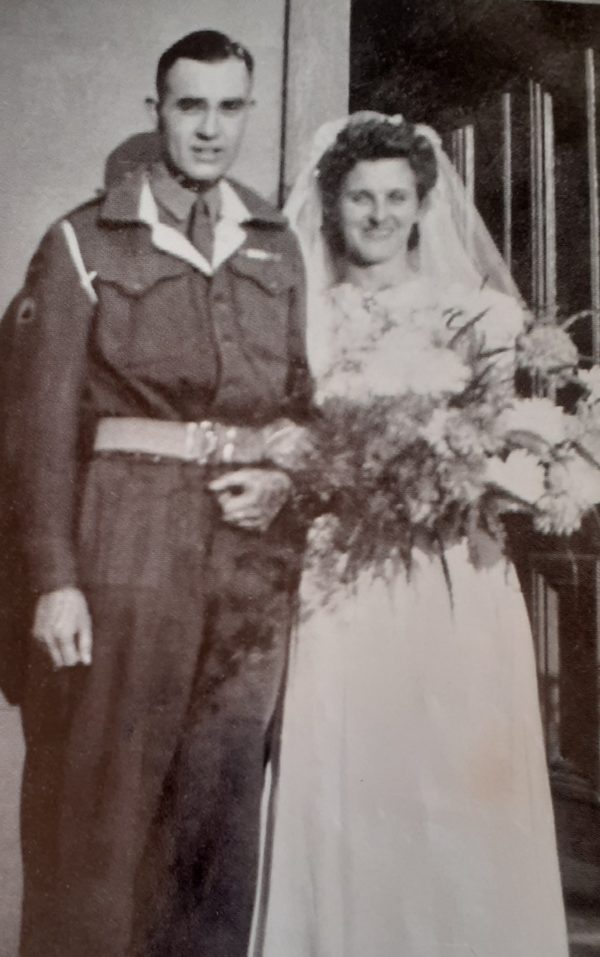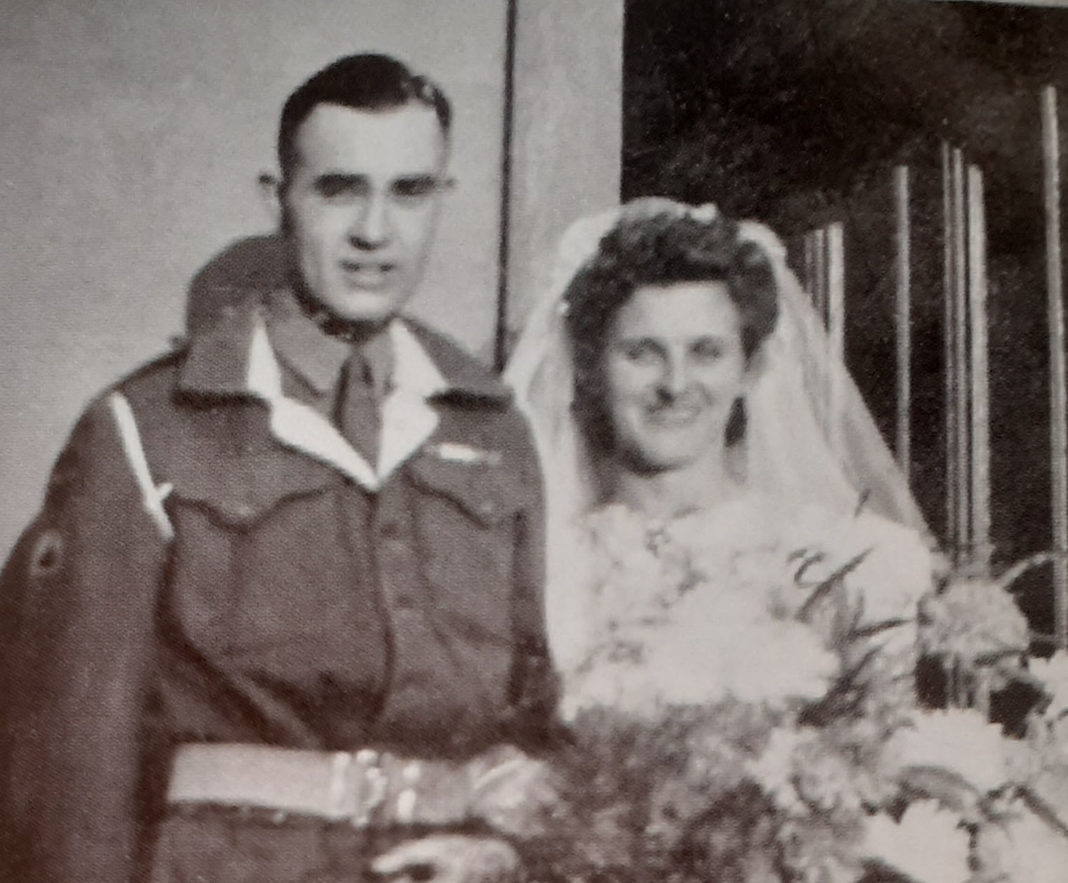- In a Leader exclusive Jim Jolly’s son, Los Montesinos resident Graeme, talks to Andrew Atkinson about his father’s service, and his parents visits to Spain.
MUM and dad discovered Spain in the seventies, and had frequent trips to various areas of the country. Words of Graeme Jolly, who along with his wife Alison, have followed in their footsteps.
With the 75th anniversary of VE day on May 8 having taken place, Graeme looks back on his parents service and time in Spain.
“They visited Guardamar and Torrevieja several times – and loved it,” said Graeme.
“From 2005, they made more trips to the area as their two sons, and daughter, had all bought property here.
“The last trip Jim Jolly made was in 2008. He died in April 2009, and his wife, Mary, in 2011,” added Graeme.
Jim Jolly arrived in France on June 26, 1944, as part of the follow-up forces to Operation Overlord, with the Allies still meeting fierce German resistance, thinking whether he would ever see Britain again.
At Christmas 1944, aged 21, he lay in an abandoned Belgian house – suffering from jaundice – forgotten by his unit.

Luckily Jim’s regiment found him. In his memoirs Jim said: “Because I couldn’t be traced, my Christmas mail was returned to my mother – saying I was missing.”
London born Jim, sent to hospital in Brussels, with only his boots and beret said: “We had to wear a bright blue jacket and trousers; white shirt and red tie.
“This was called ‘hospital blues’. It was designed to make to make us look so odd – we couldn’t try and run off!.”
Jim, who lived in Cleator Moor, Cumbria, first joined up in July 1942, doing his training in Bury St Edmunds, prior to travelling to Nethertown when his artillery unit were carrying out their pre-invasion training.
Having slept and ate on the road, before arriving in West Cumbria, along with his comrades, within a fortnight of being there he met his future wife Mary.
In 2005 the couple celebrated their Diamond wedding anniversary.
Jim, aged 19, and Mary were only together a few weeks, before their wedding. Communication was via letters.
At the time US General Eisenhower was putting forward proposals for a 1943 invasion of the continent.
The British had their reservations and managed to persuade the Americans to agree to land instead in North Africa during 1942.
Subsequent operations in Sicily and Italy in 1943 also delayed the invasion.
Roosevelt and Stalin both wanted the invasion to take place in May 1944, but difficulties in assembling the landing craft lead to the date changed to June 5.
As the date approached bad weather threw up the possibility of dangerous landing conditions and Eisenhower, commanding the action, subsequently agreed to a 24 hour delay.
Code-named ‘Operation Overlord’ the Allies landed on June 6, 1944 at five beaches in Normandy.
*Part 2 of Andrew Atkinson’s memoirs interview with Graeme Jolly and his parents, continues next week.

Re-opened May 11, with 50% of terrace capacity, under Phase 1 legislation. Come and enjoy our freshly cooked food or takeaway. Also Home Delivery service. Tasty Bites will maintain all safety and distance legislations. Sanitation provided at the door.
We look forward to seeing all our old and new customers soon. Important notice: Table for 4 people, please book in advance (maximum 10 people per table). Telephone +34 672874949; 661175151 and 966189389





